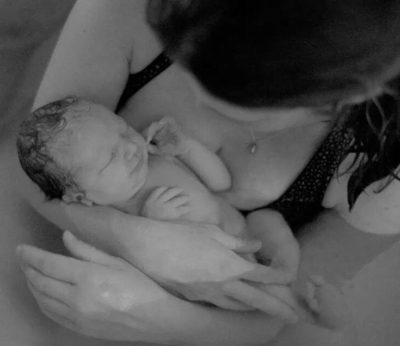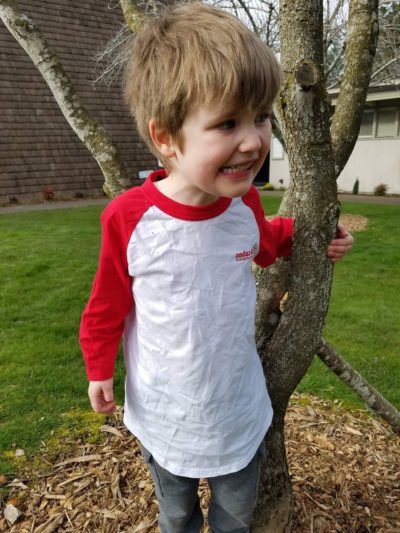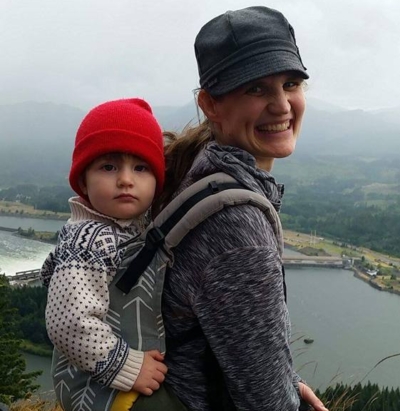The voice of Amy Hoffman
By Chelsea Castonguay
After experiencing years of infertility, Amy and Michael were thrilled to welcome their oldest son Matthew through IVF. A couple of years after Matthew’s birth, they discovered they were pregnant again, this time without any intervention. As Amy was 39, her doctor suggested a NIPT. The couple was surprised with an infant Klinefelter diagnosis.
Infant Klinefelter diagnosis:
 Noninvasive prenatal testing is generally considered the norm for women over the age of 35, with a history of fertility issues, or may have genetic indicators. After the blood sample was taken, Amy put it out of her mind. However, when she was about 15 weeks pregnant, Amy received a phone call from her midwife. The midwife let her know the routine screening had flagged something. It was 99.9% likely their second son would have Klinefelter syndrome, or 47, XXY.
Noninvasive prenatal testing is generally considered the norm for women over the age of 35, with a history of fertility issues, or may have genetic indicators. After the blood sample was taken, Amy put it out of her mind. However, when she was about 15 weeks pregnant, Amy received a phone call from her midwife. The midwife let her know the routine screening had flagged something. It was 99.9% likely their second son would have Klinefelter syndrome, or 47, XXY.
Before calling, the midwife had Googled the infant Klinefelter diagnosis and was able to share a small amount of information. She said, “Your baby will likely need testosterone when he hits puberty. There can be some challenges with learning when he’s younger and emotional things. It’s a spectrum, so he may be more or less affected by developmental delays.” She added that Klinefelter syndrome is the one she would want if her child had a chromosomal variance.
The midwife referred the couple to a genetic counselor at OHSU, a nearby teaching hospital. She comforted the parents by telling them it wasn’t a doom and gloom diagnosis. Their child wouldn’t have a shortened or diminished life because of it.
After struggling with fertility issues, including the loss of Matthew’s twin, Amy said the idea of terminating the pregnancy never even crossed her mind. Miles was their miracle baby. Michael and Amy decided since Klinefelter syndrome was a spectrum disorder, it could mean their child would be minimally impacted. It wasn’t something she was willing to terminate a pregnancy over. She recalled thinking, “I’m having this baby. I felt protective of Miles.”
Birth:


Miles was a very calm, relaxed baby, even with his infant Klinefelter diagnosis. Amy referred to him as her “Buddha baby,” as he was very mellow and rarely cried. He took to nursing immediately and had a tongue tie revised at two weeks, which made nursing even more successful for them.
Miles as a toddler:


Miles took longer to hit some developmental milestones. He skipped crawling and went right into walking at almost two years old. He moved from supported sitting to a push walker to get around the house before eventually taking his first unassisted steps.
By the time they had Miles formally diagnosed, Amy had already accepted it and therefore didn’t feel surprised. Instead, they focused on getting Miles into as many early intervention programs as possible and started services when he was 19 months. A speech therapist came to their home and taught Miles speech exercises to help him master different sounds. At age three, Miles moved to a center for speech therapy, where he received care in groups with other toddlers.
Expressive language:


Unfortunately, the COVID-19 pandemic didn’t help. Miles was very social and wanted to play with other children, which the pandemic made difficult. While he initially started with in-person kindergarten, he had to finish the rest of the year remotely after the pandemic began. The last two years were remote, but the family hopes to get the kids back into school when everyone can be vaccinated. They were able to get Miles back to school in person in late March, which he enjoyed. His second graduate class had 26 students, so they opted to have him participate in distance learning through his school’s remote learning program.
Sharing the diagnosis:
Miles’ infant Klinefelter diagnosis has never been a secret in their family. Amy was “really upfront and let everyone know” immediately, all of whom were supportive. While most had never heard of Klinefelter syndrome, she was ready to educate them. Amy let them know their plan to support Miles. The program included continuing with early intervention and preparing him for testosterone replacement therapy as a teen.
Finding support:


Some things are more difficult for Miles than other kids, such as getting dressed or putting his shoes on. While previously he wasn’t interested in riding a bike, he has made it a goal to learn to ride this summer. Whenever he faces a challenge, Amy is there to support him. She said, “I can just imagine how much strength it takes for him to push through and keep trying.”
Amy continues to be a big proponent of bringing awareness to the community. Before connecting with Living With XXY, she wondered how she could do so. She felt happy to discover someone with Klinefelter syndrome was running the organization and found many parallels between Miles and Ryan. Now that Miles is getting older, she gets his permission to share about their lives.
Living With XXY:


He has a great sense of humor and enjoys telling jokes. He loves to have Amy read to him from joke books and memorizes all the answers. He’s started to develop an interest in reading and spends hours curled up with a book or magazine. Even though art isn’t something he’s “super drawn to,” he enjoys creating his own colorful and unique creations.
Miles is a sweet, snuggly, and loving kid. He enjoys snuggling up with Amy at bedtime to read books. Even on days when he struggles with regulating his emotions, Amy is often reminded that “at his core, he’s this kind, snuggly, little guy.”


It breaks her heart that at only seven, Miles has already had to learn that life isn’t always fair. She encourages him, tells him he’s loved, and lets him know they will continue to help him as much as possible.
Plans for the future:


They plan to continue talking with Miles about his Klinefelter diagnosis, which he is already aware of. Amy said, “I just want him to understand there’s nothing wrong with him, and he’s not bad. He’s not doing anything wrong. He can’t control everything, like his impulsivity.”
What she would tell other mothers:


She added, “I think it’s also important for someone with a small baby or pregnant to be prepared that your child might have more challenges than you expect because Klinefelter syndrome is a spectrum. Be ready and get your support group around you. Learn to advocate for your child with doctors and in a school setting. Letting the teachers know that advocating for your kid is important and a big deal. I want parents to get their support system around them and prepare for their child, thinking ahead about how we will support this kid. If we start noticing delays, let’s have him evaluated for early intervention. It’s essential to have support from other parents who get it. The sooner you start early intervention, the sooner you’ll build that support around you. Community is important.”




2 Responses
A truly inspiring story. I’d like to think every parent, confronted with learning their child is diagnosed with a condition such as Mile’s parents were given (any condition for that matter), would accept the news as they did. It takes courage, much time and expense to pursue. Miles will benefit through the years, the time Amy spent pursuing and getting Miles the help needed at different stages plus the importance of giving your child the knowledge he needs to understand and overcome the obstacles that will try to get in the way. Again, a heartwarming story from a loving Mom with a special family.
I was diagnosed with Klinefelter syndrome before I was born so I can probably wholeheartedly understand somewhat what this child will go through. One thing to be keen is social media, if you can, teaching your child about the dangers of social media will allow them to positive cultivate their lifestyle in case they happen to go on social media on their own agenda. I say this is important because with the problems I faced from Klinefelter syndrome, I didn’t really know how to express myself or filter thoughts so social media really affected me negatively. I’m now 20 years old but one thing that helped me the most was playing sports for both my mind and body to be at an attained peace. Of course, there will always be downfalls but in the end, it’s a learning process with too many speed bumps.